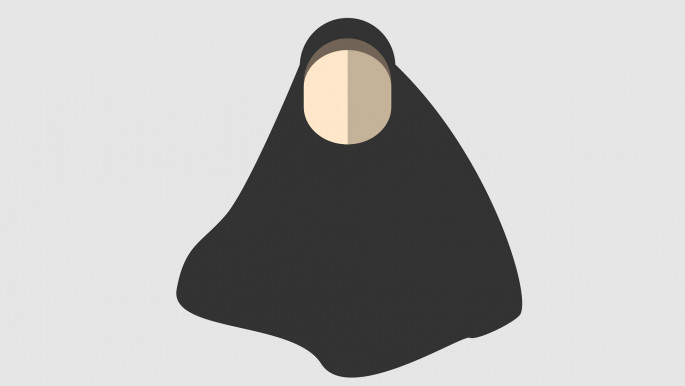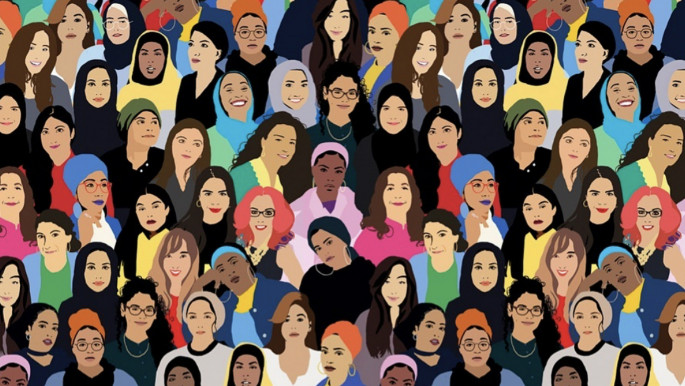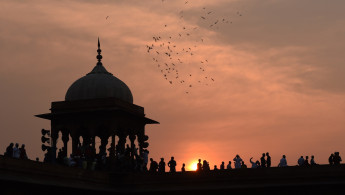As British Muslims, let's reconnect with our parents' stories this Ramadan
Who they were before they immigrated, and what it felt like to break ground in the West. For so long, these conversations were waiting to happen.
Yet due to a multitude of reasons, from having hard-working ethnic minority parents who worked odd hours and couldn't afford the time to talk, to a lack of open communication in households between immigrant parents and their first and second-generation Western children, these stories got lost and marked under 'unimportant'.
Language barriers between parents and grandparents also meant that for many of us our close loved ones got to know only a version of us, as we didn't have the vocabulary to show them all of who we are.
But now, most of us have been sent home. Our children have been told school isn't safe for them anymore and the places we usually retreated to for leisurely peace are no longer an option.
We can't see the people we love, whether that's a high-risk grandparent or a sister who works for the NHS, and, in addition to a global pandemic, Ramadan has also fallen under the weeks of lockdown.
 |
|
| Read more: It's time to read about the untold history of revolutionary Muslim women |
A time synonymous with Hajj, prioritising your loved ones and being generous in your communities, tangible acts of care experienced during the holy month will turn digital.
In other words, 'If not now, then when?' strikes a chord. When else will we have the time to speak to our elders about their stories?
With the number of video calls soaring - a key way many are staying connected - it's also the cushion that allows all sorts of conversations to happen.
"Food is really important in our cultural heritage. Our recipes are our heirlooms, to the point where there's sometimes secrecy between mothers and in-laws in what makes a dish really great," Nafisa Bakkar, CEO and Founder of Amaliah, told The New Arab. "I FaceTime my mum so I can cook the dishes I love but have no clue how to make.
 |
There's an unspoken rule between the children and grandchildren of immigrants that one day, when the time is right, we'll ask our families about their journeys |  |
"I've also actually started recording conversations with my Nani and cousins back home in India, for just in case. If in the future my nieces and nephews want to know who they were, what they sounded like and the normal conversations we had, they would have that documented."
Documentation is a word echoed when hearing different ethnic minority Muslim families navigate lockdown life. It's something that hasn't been successfully done due to recent Islamic communities enduring civil unrest, the effects of colonialism and the erasure of many Islamic and cultural histories.
Read more: Why Riz Ahmed's short film on Islamophobia is a call to action
It's perhaps why so many of us in the diaspora feel as though our stories only started when our parents immigrated. Yet from speaking to our grandparents about their great-grandparents during these times, that's not only far from the truth but disrespectful to the depth of our cultural wealth.
"In addition to creating calendar invites of interviews, I want to do it with my mum and dad. Asking my parents about what it was like when they first came here, what they wanted to be when they were younger, as well as when they realised they intended to stay," said Bakkar.
 |
|
| Read more: 'It was about starting a dialogue': A year on since It's Not About The Burqa |
For Sadiya Ahmed, Founder of Everyday Muslim Heritage and Archive Initiative, it's making sure conversations are being recorded intergenerationally.
"I'm one of nine siblings so instead of our weekly catch-ups, we all meet up via Zoom, WhatsApp or Houseparty. The kids also have their own groups too. It's been a great opportunity for us to teach and learn family recipes and learn new ones as well as traditional skills like arts and crafts, sewing and gardening.
"As my work is around collecting and preserving heritage, I have been encouraging family and friends and our social media followers to sort out photographs and record oral history interviews which we will digitise and add to our archive collection."
On one hand, Ramadan under a global pandemic will not feel like previous Ramadans, where family, friendships and community were at the heart of our festive activities.
Listen: The New Arab Voice podcast: Ramadan and the Coronavirus
On the other, it may give the many Muslims fasting under lockdown time to reflect and ask the questions they've always wanted to know about their parents. Sometimes physical conversations allow for barriers that aren't as easy to put up during a video call.
It also gives space for uncomfortable conversations. For third-year university student, Anisah Choudhury*, it was through video calling about a family nikah (an Islamic marriage ceremony) that she found out about her own grandparent's wedding during the civil war that then formed Bangladesh in 1971.
 |
It is now time that we ask them about themselves, in order to find out about ourselves |  |
"I've been wanting to find out more about their stories for a while now and this is exactly what I want to continue doing".
And though we can't ignore the amount of pain many are going through right now, especially ethnic minorities and Muslim communities who are being disproportionately affected, on top of health care services buckling under pressure and loved ones being lost, maybe it's through recognising our own mortality, that we can come to appreciate our histories.
However awkward that conversation may be with our elders, it is now time that we ask them about themselves, in order to find out about ourselves. Technology is a tool that helps us make the most of the living, let us not forget to use it when we can.
Tahmina Begum is a freelance journalist and editor.
Follow her on Twitter @tahminaxbegum


![sudan women [getty] sudan women [getty]](/sites/default/files/styles/image_330x185/public/media/images/5019D7F4-52AF-4377-8A05-885D27476479.jpg?h=d1cb525d&itok=tKXV7r-W)